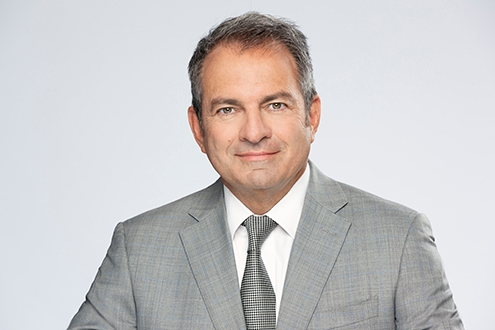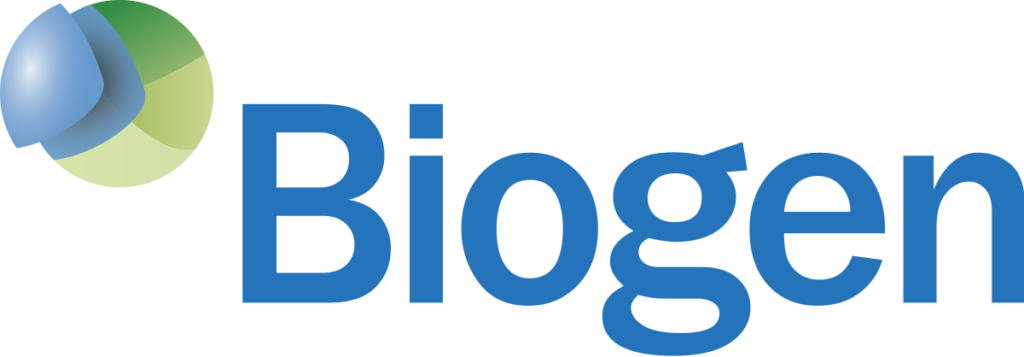Historic moment of Joy and Hope for Alzheimer’s patients and caregivers: FDA approves Aduhelm (aducanumab) to treat patients with Alzheimer’s disease (dementia)

Dear Friend,
I will not take much of your time with my notes ahead on this article about the historic moment for Alzheimer’s patients and caregivers as FDA approved Aduhelm (aducanumab) to treat patients with Alzheimer’s disease. Here below, I literally am only sharing the thoughts written by Dr. Patrizia Cavazzoni, Director, FDA Center for Drug Evaluation and Research, and Michel Vounatsos, the Chief Executive Officer of Biogen. But I wanted to use this opportunity to say that as someone who took part in the role of imaginary “Doctor Ed” and after my nearly decade-long tenure in the field of assisting living and Alzheimer’s community I am again hopeful. I remember, how often I wondered: why there was no cure for Alzheimer’s, for Dementia?. My brain is not wired to invent anything like, but I am surely wired to cheer those who are inventing. And of course, as I am writing this in Massachusetts, I am beaming with joy and pride that the inventors for the possible cure for Alzheimer’s and Dementia, are indeed from Cambridge, MA., where I also worked……
And as you finish reading this article, I encourage you to leave a comment below.
(-Eddie)
__
Article by Dr. Patrizia Cavazzoni, Director, FDA Center for Drug Evaluation and Research

Today FDA approved Aduhelm (aducanumab) to treat patients with Alzheimer’s disease using the Accelerated Approval pathway, under which the FDA approves a drug for a serious or life-threatening illness that may provide meaningful therapeutic benefit over existing treatments when the drug is shown to have an effect on a surrogate endpoint that is reasonably likely to predict a clinical benefit to patients and there remains some uncertainty about the drug’s clinical benefit.
This approval is significant in many ways. Aduhelm is the first novel therapy approved for Alzheimer’s disease since 2003. Perhaps more significantly, Aduhelm is the first treatment directed at the underlying pathophysiology of Alzheimer’s disease, the presence of amyloid beta plaques in the brain. The clinical trials for Aduhelm were the first to show that a reduction in these plaques—a hallmark finding in the brain of patients with Alzheimer’s—is expected to lead to a reduction in the clinical decline of this devastating form of dementia.
We are well-aware of the attention surrounding this approval. We understand that Aduhelm has garnered the attention of the press, the Alzheimer’s patient community, our elected officials, and other interested stakeholders. With a treatment for a serious, life-threatening disease in the balance, it makes sense that so many people were following the outcome of this review. Further, the data included in the applicant’s submission were highly complex and left residual uncertainties regarding clinical benefit. There has been considerable public debate on whether Aduhelm should be approved. As is often the case when it comes to interpreting scientific data, the expert community has offered differing perspectives.
At the end of the day, we followed our usual course of action when making regulatory decisions in situations where the data are not straightforward. We examined the clinical trial findings with a fine-tooth comb, we solicited input from the Peripheral and Central Nervous System Drugs Advisory Committee, we listened to the perspectives of the patient community, and we reviewed all relevant data. We ultimately decided to use the Accelerated Approval pathway—a pathway intended to provide earlier access to potentially valuable therapies for patients with serious diseases where there is an unmet need, and where there is an expectation of clinical benefit despite some residual uncertainty regarding that benefit. In determining that the application met the requirements for Accelerated Approval, the Agency concluded that the benefits of Aduhelm for patients with Alzheimer’s disease outweighed the risks of the therapy.
What the Data Show
The late-stage development program for Aduhelm consisted of two phase 3 clinical trials. One study met the primary endpoint, showing reduction in clinical decline. The second trial did not meet the primary endpoint. In all studies in which it was evaluated, however, Aduhelm consistently and very convincingly reduced the level of amyloid plaques in the brain in a dose- and time-dependent fashion. It is expected that the reduction in amyloid plaque will result in a reduction in clinical decline.
We know that the Peripheral and Central Nervous System Drugs Advisory Committee, which convened in November 2020 to review the clinical trial data and discuss the evidence supporting the Aduhelm application, did not agree that it was reasonable to consider the clinical benefit of the one successful trial as the primary evidence supporting approval. The option of Accelerated Approval was not discussed by the Advisory Committee. As mentioned above, treatment with Aduhelm was clearly shown in all trials to substantially reduce amyloid beta plaques. This reduction in plaques is reasonably likely to result in clinical benefit. After the Advisory Committee provided its feedback, our review and deliberations continued, and we decided that the evidence presented in the Aduhelm application met the standard for Accelerated Approval. We thank the Advisory Committee for its independent review of the data and valuable advice.
Accelerated Approval
The FDA instituted its Accelerated Approval Program to allow for earlier approval of drugs that treat serious conditions, and that fill an unmet medical need. Approval is based on a surrogate or intermediate clinical endpoint (in this case reduction of amyloid plaque in the brain). A surrogate endpoint is a marker, such as a laboratory measurement, radiographic image, physical sign or other measure that is thought to predict clinical benefit but is not itself a measure of clinical benefit. The use of a surrogate endpoint can considerably shorten the time required prior to receiving FDA approval.
Drug companies are required to conduct post-approval studies to verify the anticipated clinical benefit. These studies are known as phase 4 confirmatory trials. If the confirmatory trial does not verify the drug’s anticipated clinical benefit, FDA has regulatory procedures in place that could lead to removing the drug from the market.
The Devastation of Alzheimer’s Disease
With all this said, we are extremely aware of the gradual and cumulative devastation that Alzheimer’s disease causes, as patients lose their memory and cognitive functioning over time. In late-stage disease, people can no longer hold a conversation or respond to their environment. On average, a person with Alzheimer’s disease lives four to eight years after diagnosis, but some patients can live up to 20 years with the disease.
The need for treatments is urgent: right now, more than 6 million Americans are living with Alzheimer’s disease and this number is expected to grow as the population ages. Alzheimer’s is the sixth leading cause of death in the United States.
Although the Aduhelm data are complicated with respect to its clinical benefits, FDA has determined that there is substantial evidence that Aduhelm reduces amyloid beta plaques in the brain and that the reduction in these plaques is reasonably likely to predict important benefits to patients. As a result of FDA’s approval of Aduhelm, patients with Alzheimer’s disease have an important and critical new treatment to help combat this disease.
FDA will continue to monitor Aduhelm as it reaches the market and ultimately the patient’s bedside. Additionally, FDA is requiring Biogen to conduct a post-approval clinical trial to verify the drug’s clinical benefit. If the drug does not work as intended, we can take steps to remove it from the market. But hopefully, we will see further evidence of benefit in the clinical trial and as greater numbers of people receive Aduhelm. As an agency, we will also continue to work to foster drug development for this catastrophic disease.
ABOUT THE DRUG
Aducanumab (marketed as Aduhelm) Information
Aduhelm is an amyloid beta-directed antibody indicated for the treatment of Alzheimer’s disease. It is approved under the accelerated approval pathway, which provides patients suffering from a serious disease earlier access to drugs when there is an expectation of clinical benefit despite some uncertainty about the clinical benefit of the drug.
Accelerated approval is based upon the drug’s effect on what is called a “surrogate” endpoint—an endpoint that reflects the effect of the drug on an important aspect of the disease—where the drug’s effect on the surrogate endpoint is expected, but not established, to predict clinical benefit. In the case of Aduhelm, the surrogate endpoint is the reduction of amyloid beta plaque.
This pathway requires the company to verify clinical benefit in a post-approval trial. If the sponsor cannot verify clinical benefit, the FDA may initiate proceedings to withdraw approval of the drug.
FROM THE MANUFACTURER OF THE DRUG
CAMBRIDGE, Mass. and WOODCLIFF LAKE, N.J., June 07, 2021 (GLOBE NEWSWIRE) — Following today’s U.S. Food and Drug Administration’s (FDA) accelerated approval of ADUHELMTM (aducanumab-avwa) as the first and only Alzheimer’s disease treatment to address a defining pathology of the disease by reducing amyloid beta plaques in the brain, Biogen (Nasdaq: BIIB) and Eisai Inc., U.S. subsidiary of Eisai Co., Ltd., announced a range of programs intended to support access for all qualified patients, including traditionally underserved populations. These initiatives aim to help patients and their families understand the disease, navigate the diagnostic journey, secure culturally competent care and afford treatment.
Cost, Coverage, Co-Pay Assistance and Value-Based Contract with Cigna
Currently, Alzheimer’s disease represents a significant economic burden for patients, caregivers and society, with more than 11 million Americans providing an estimated 15.3 billion hours of unpaid care in 2020. The annual cost of care for Alzheimer’s disease and other dementias in the U.S. is over $600 billion and lifetime care for someone with Alzheimer’s disease is estimated to cost approximately $500,000 per patient, which is primarily borne by patients’ families as an out-of-pocket expense.
Biogen has established the price of ADUHELM based on the overall value this treatment is expected to bring to patients, caregivers, and society, while reflecting key principles such as innovation, access and sustainability. The wholesale acquisition cost (WAC) of ADUHELM, which is an infusion once every four weeks, is $4,312 per infusion for a patient of 74 kg–the average weight of a U.S. patient with mild cognitive impairment (MCI) or mild dementia. The yearly cost at the maintenance dose (10 mg/kg) would be $56,000. The cost during the first year of treatment will be lower due to the titration period. WAC is a list price and not the net price or the price paid by patients with insurance. The out-of-pocket cost for patients with insurance will vary depending on their coverage.
Biogen and Eisai are committed to providing access to ADUHELM for patients across a spectrum of financial situations. For qualified, commercially insured ADUHELM patients, co-pay and infusion cost assistance programs may reduce out-of-pocket costs to as low as $0. Patients who are covered by Medicare through a Medicare Advantage plan have a maximum annual out-of-pocket cap. Most traditional fee-for-service Medicare enrollees also have secondary coverage (e.g., Medicaid or a supplemental Medigap plan) that limit out-of-pocket expenses. Medicaid patients have nominal co-pays.
ADUHELM has been studied in patients with early stages of Alzheimer’s disease – MCI and mild dementia – with confirmed presence of amyloid pathology. Biogen and Eisai estimate that approximately one to two million people in the U.S. who have been clinically diagnosed with MCI or mild dementia suspected to be due to Alzheimer’s disease would have confirmed amyloid beta pathology if tested.
The companies have been working closely with payers to prepare them for the launch of ADUHELM and support patient access. In that regard, Biogen and Cigna Corporation, a global health service company, intend to enter into a value-based contract to ensure that there is a streamlined path to access treatment for patients consistent with the population in which ADUHELM was studied. The parties will also be tracking performance towards certain outcome metrics for patients.
“Alzheimer’s disease imposes a tremendous burden on patients, caregivers and society as a whole,” said Dr. Steve Miller, Executive Vice President and Chief Clinical Officer at Cigna. “Given the known infrastructure challenges in the U.S., we are working to ensure that the patients who will benefit most from this new treatment have a clear path to access it.”
Biogen and Eisai have committed to not increasing the price of ADUHELM for the next four years.

A Letter from Biogen’s CEO Michel Vounatsos on ADUHELM (aducanumab-avwa)
Today, on behalf of my Biogen colleagues, I am incredibly humbled to share that the U.S. Food and Drug Administration (FDA) has granted accelerated approval for ADUHELM™ (aducanumab-avwa), the first-ever therapy to address a defining pathology of Alzheimer’s disease—amyloid beta plaque.

We come to this historic moment with thanks for the inspiring contributions of thousands of Alzheimer’s patients and caregivers who participated in our clinical trials, for the pioneering work of scientists and researchers inside and outside Biogen, and for the relentless dedication of our employees globally. We are also very appreciative of our collaboration partners Eisai and Neurimmune.
For nearly two decades, the medical and scientific communities have searched for a new treatment for Alzheimer’s disease. And millions of people with this dreaded condition—along with tens of millions more of their family, friends and caregivers—have watched helplessly, with little hope, as they confronted this devastating condition. In my own experience, I too have seen how this disease robs patients of their cognitive abilities, of their capacity to enjoy their lives and interact with loved ones.
The approval of ADUHELM represents a crucial inflection point in our collective battle against Alzheimer’s disease. By addressing a defining pathology of the disease, this novel therapy has the potential to help fundamentally change the way patients are diagnosed and treated.
I have hoped for years that we would reach a moment like this. We all know the staggering numbers: there have been at least 100 drug development programs discontinued since 2003—the last time a new Alzheimer’s drug was approved. What it tells us is that the path for innovation is not straightforward, especially for something as complex as Alzheimer’s research. The journey during Biogen’s many years of research and development has been humbling, but we have learned from industry’s past research efforts and been determined to follow the science, always driven to address patients’ unmet needs.
ADUHELM is a first-in-class approved therapy: I believe it will be the catalyst to a new era of innovation for Alzheimer’s disease, and the first of many new treatments available to patients. More resources will be drawn into research that can help patients through the disease continuum, explore new pathways, and find potential therapy combinations.
Our industry has been the source of similar types of transformative innovation before. This is exactly how HIV/AIDS and many forms of cancer were changed from untreatable diseases into conditions with viable treatment options. Multiple sclerosis provides a good example. The first therapy introduced in 1993 via accelerated approval set in motion a cycle of innovation that resulted in now more than 20 treatments approved, including six developed by Biogen.

We are committed to sharing our future insights about ADUHELM with the scientific community as we collect more data from the real-world use of this treatment. In addition, as part of our accelerated approval, Biogen will conduct a confirmatory trial to verify the clinical benefit of ADUHELM.
Until now, patients had no treatment option directed at a defining pathology of the disease. Now that a new treatment studied in the early stage of the disease is available, we must collectively shift our focus to early detection, diagnosis and access.
Price and access are sensitive matters for all groundbreaking innovations. We have engaged extensively with health economists, public health experts, and payers about ADUHELM – and we have examined other recent biologic drug innovations. Consistent with our pricing principles, we have established a price for ADUHELM that reflects the overall value this treatment brings to patients, caregivers and society – and one that will enable continuous innovation.
Our commitment goes even further—from not increasing ADUHELM’s price for the next four years to entering into value-based agreements with payers and insurers. Our agreement with the Veterans Health Administration and another with Cigna will be important steps to making the treatment available to eligible patients, and we look forward to continued engagement with the Centers for Medicare and Medicaid Services and insurance companies. As Biogen generates data in the real world and better understands ADUHELM’s place in the Alzheimer’s treatment landscape, we will continue these engagements with the aim of ensuring ADUHELM continues to be accessible in a way that is sustainable.
While we launch ADUHELM, we are also investing in more than 30 clinical programs currently under development. These include our investigations into several possible additional treatments for Alzheimer’s disease, as well as other debilitating neurological conditions such as Parkinson’s disease, ALS and stroke. We have spent more than $28 billion in research and development since 2003.
The approval of ADUHELM lays the foundation for creating a new treatment paradigm around Alzheimer’s disease, but what’s needed is far bigger than what any one medicine or any single company can achieve on its own. Today’s milestone is a major step forward in changing Alzheimer’s disease from a disease often perceived as an inevitable consequence of aging to a condition with a new treatment option.
We are working toward the goal of creating an environment where detection of the disease is as early, widespread and routine as mammograms and colonoscopies. Biogen and Eisai have also launched a range of innovative programs and services in the U.S. to help patients and families navigate the diagnostic and treatment journey.
Of particular importance are our multiple initiatives that aim to address the health disparities and inequities experienced by Alzheimer’s patients and caregivers in underserved communities. We are proud to have joined forces with CVS Health and the National Association of Free and Charitable Clinics (NAFC) to reach the most vulnerable. And we stand ready to cooperate with more stakeholder groups to support broad access to treatment, now and into the future.
Today, incredibly inspirational for all of us at Biogen, marks the beginning of a new era for patients, caregivers, and the scientific community engaged in Alzheimer’s research. At Biogen, we are committed more than ever to neuroscience and brain health, to pioneering science and working fearlessly to change patients’ lives. Our focus remains, as always, on their unmet need.
Sincerely,
Michel Vounatsos
Chief Executive Officer of Biogen, 225 Binney Street, Cambridge, MA 02142, Phone: 781-464-2000







Leave Your Comment